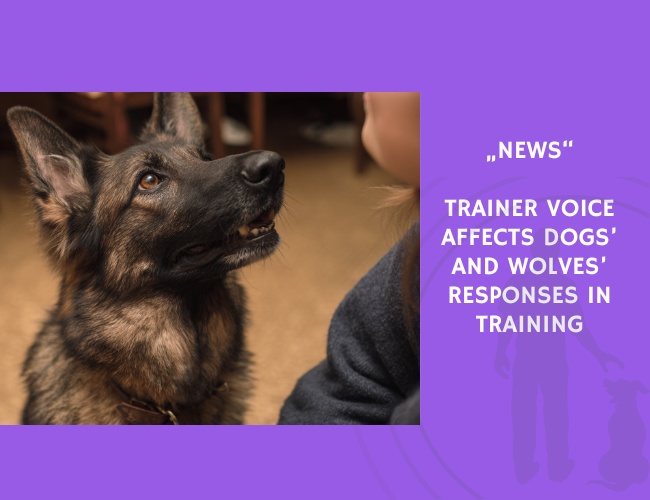Training outcomes in dogs—and even human-socialized wolves—may depend heavily on how trainers speak. In a study involving 270 sessions with nine dogs and nine wolves, researchers found that vocal tone and speech type greatly impacted animal behavior and emotional responses.
The study classified speech into three types: nice (friendly/encouraging), neutral, and reprehensive (critical/harsh). Sessions with more nice speech were associated with more tail wagging and more time spent close to the trainer in both dogs and wolves. In contrast, reprehensive speech was linked to reduced training performance in dogs and increased retreating behavior in wolves.
Dogs responded more to higher-pitched speech, consistent with what’s known as Dog-Directed Speech—similar to “baby talk.” Wolves, however, were more influenced by lower-pitched tones, possibly due to differences shaped by the domestication process.
While cortisol levels—used to measure physiological stress—did not vary significantly with speech type, the observed behaviors suggest clear emotional effects. Positive, supportive speech improves not only compliance but also emotional comfort during training.
These findings reinforce the importance of vocal tone in training animals and hint at the evolutionary changes that have made dogs more sensitive to human emotional cues than their wild counterparts.
Source: Melissa Gabriela Bravo Fonseca, H. Hilário, K. Kotrschal, F. Range, Z. Virányi, M. Duarte, L. C. G. Pereira, A. S. Vasconcellos, Animals, March 1, 2023.










